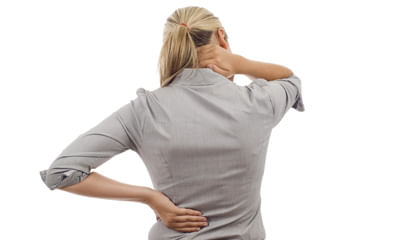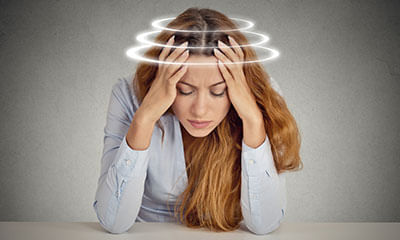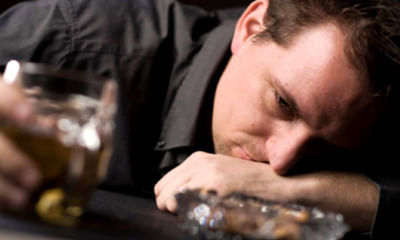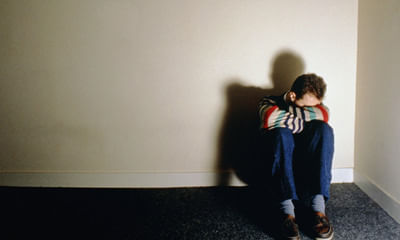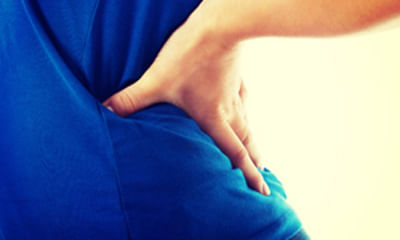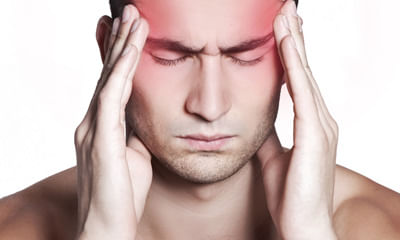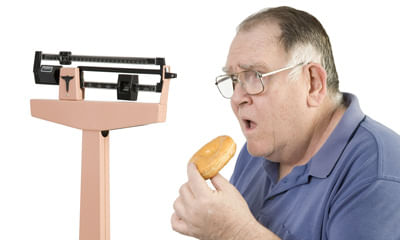Pulsation On Right Side Of Head
14 days back I hit back to sofa suddenly with fore due to which my head came front during that event after that I experi ...
Ask Free Question
Yes. Pulse can feel on occipital region. If there is pain ,dizziness feeling thn go for ct head. Thnks.
I'm 34 years old, got dizziness while playing badminton and vertigo followed by vomiting. A day after started getting he ...
Ask Free Question
Well this can be due to spondylosis also, you need to do regular yoga, wake up early in the morning go for walk or jogging regularly, you need proper homeopathic treatment for this purpose.
Hello, I am 21 male, I started feeling my heart pulsation all over my body 1 year ago. I had my ekg and echocardiography ...
Ask Free Question
Heart palpitations are abnormal or irregular heartbeats that cause a thumping or fluttering feeling in your chest — sometimes also described as "missing a beat. Palpitations can occur with heart rates that are too rapid or too slow. They can be triggered by stress, exercise, diet, medication and sometimes by a medical condition. Although heart palpitations can be a worrisome or a strange experience, they're usually harmless. In most cases, it's possible to find the cause and address it in order to reduce palpitations. Rest and take a break. Some people experience heart palpitations due to physical overexertion or being too active; however, an increased heart rate from exercise or anxiety (called tachycardia) is not the same as palpitations. Both can happen at the same time, although palpitations are defined best as unusual heart beats, not just fast heart beats. If your palpitations seem to be sometimes triggered by exercise, then stop what you're doing and rest for five to 10 minutes and catch your breath. Alternatively, reduce your exertions or change your exercise to something less strenuous. Walk instead of jogging, for example. Lift smaller weights. Gently tread water in the pool instead of doing strokes. Resting heart rates vary between people, but it's typically between 60 and 100 beats per minute. Palpitations can occur above, below or within the normal heart beat range. Reduce your stress/anxiety. Moderate-to-high levels of stress and anxiety are relatively common triggers for heart palpitations due to the release of too much "stress hormones" into the bloodstream. Thus, you may be able to prevent or reduce your palpitations by managing how you react or respond to stressful situations. Stress-relieving techniques like yoga, tai chi, deep breathing, visualization, meditation, biofeedback and aromatherapy are all helpful for promoting relaxation and better heart health. Ask at your local gym or health clinic about joining a yoga or tai chi class. Taking deep breaths can naturally lower your heart rate and reduce the occurrence of heart palpitations, especially if you practice positive visualizations or guided imagery. Buy some relaxing aromatherapy candles (lavender scented, for example) and light them in the evenings prior to going to bed. Don't forget to get enough sleep — at least eight hours per night, although some people need a little more. A chronic lack of sleep can lead to anxiety and heart palpitations. Remove yourself from stressful situations, such as arguments. Quit focusing on financial problems. Stop watching scary movies or shows. Avoid consuming stimulants. There are a number of substances that affect your central nervous system (cns) and can trigger heart palpitations, including alcohol, caffeine, nicotine, illicit drugs (such as cocaine and amphetamines) and some over-the-counter medications (particularly cold and cough medicines. Thus, if you're having periodic heart palpitations, consider what you're putting into your body on a regular basis, because it could very likely be the cause. Vagal maneuvers are simple actions that you can do at home to affect your vagus nerve, which is the primary one that regulates your heart rate.] vagal maneuvers can slow your heart rate down and stop palpitations within seconds if done correctly. The valsalva technique involves holding your breath and bearing down as if you're having a bowel movement for about 15– 20 seconds — it increases your intrathoracic pressure and stimulates the vagus nerve. The valsalva technique can change the rhythm of electrical impulses in your heart, help your heart rate return to normal and reduce palpitations. The valsalva maneuver shouldn't be done if you have heart disease or are advanced in age, as it may increase the risk of stroke. Activate your diving reflex. The diving reflex gets activated when your head or face gets cold for more than a few seconds — your heart rate slows down to reduce blood flow in an attempt to survive, which is helpful when submerged in cold water. To trigger this survival reflex, place very cold water or an ice pack against your face for about 10 seconds. Your heart rate and palpitations should reduce pretty quickly. Dip your face or submerge your head in cold water. Put a wet face cloth in the freezer for 30 minutes then press it against your face. Alternatively, drinking a glass of very cold water will cool the hard palate of your upper mouth and also mildly trigger the diving reflex. Vagal maneuvers are simple and generally quite safe to do, but they should be done as soon as you realize you're experiencing palpitations for best results. Do not attempt vagal maneuvers while standing — they can sometimes cause dizziness and fainting. Ry coughing a bunch of times. You can also try coughing forcefully (or clearing your throat) multiple times in efforts to move your diaphragm, increase intra-thoracic pressure, and stimulate your vagus nerve. In essence, coughing creates the same physiological effects as bearing down (the valsalva technique), but some people may find it easier to perform. When coughing, it must be forceful enough and sustained — a single, light cough won't likely trigger a vagal response. Make sure to completely swallow any food you're eating or beverages you're drinking in order to prevent the risk of choking. For medication consult online in private.
Sir/madam, on 24th oct I was under stress around 08: 30 pm I experienced sudden pulsations on right side of brain. Next ...
Ask Free Question
Most likely cause is Sinusitis.., blockage of right sinuses. You should try good antibiotic..for 5 days and a NSAID for few days.
I keep having pulsations and a slight dizzy feeling in my head. I have done overall health check up and also mri brain a ...
Ask Free Question
Dear user kindly detail me your past Medical records along with bp and sugar levels. For proper treatment and management support.
I have had these episodes of depression where I feel unexplained sadness, negativity, self loathing, extreme anger, frus ...
Ask Free Question
Hello Friend, Good that you are seeking a help here. Yes, all these symptoms are sign of underlying deep emotional disturbance in your. May be it needs further evaluation of your career or job related stress, relationships related issues, lifestyle patterns, food, other habits etc to identify or isolate the root cause behind such behavior. An open discussions with mental health professional like us can help to assess or screen your symptoms to recommend suitable solution. You may need counseling and psychotherapy or self therapies to overcome this problems. Feel free to reach me online for further evaluation and recommendation. Be positive. You will be alright soon.
What would cause a strong pulse on the left side of my head between ear and temple? ...
Ask Free Question
Any cause of congestion could cause pulsations in left temporal region. Rule out serious causes like Hypertension by measuring your blood pressure. Other causes are rather simple like cold etc.
I am 28 m and suffering from a continuous head heaviness and crippling fatigue from last 20 years. My symptoms are: head ...
Ask Free Question
According to the details given by you I am suggesting a homoeopathic medicine. See if it helps. Even if it does not in case then also I advise you to continue with the homoeoapthic treatment as I am sure your complaints have better solution in homoeopathy. Take Can notharis 200 1 dose every week. Better consult for further treatment.
I am experiencing tightness and heaviness in my front part of head and below ears where pulsation is also felt. I have g ...
Ask Free Question
lybrate-userji, Pulsation below ear may be normal. Your symptoms seem to be unrelated to CO2 laser resurfacing. Unless definite diagnosis is made, treatment may be improper. But take your attention away from resurfacing.
Hi my age is 61 and I am diabetic. When I am trying to sleep my nerves in head are beating and unable to sleep. I also h ...
Ask Free Question
Mr. P lybrate-user, Thanks for the query. It is not clear what you are actually referring to by saying. When I am trying to sleep my nerves in head are beating and unable to sleep" Because nerves do not beat. What you saying may be related to some feeling of pulsation. This kind of a feeling may be there if your BP is high. Please tell me if you have hypertension and are you on treatment for that? If yes, what is the BP level now and the drugs with dosage. About the "motion problem" Due to diabetes some times there may be constipation as well as loose motions on some occasion. Please see that you take enough liquids every day. Plus consume a good deal of green leafy vegetables, salads and fruits (permitted. Ones, 100 g a day) that to with well controlled blood glucose. Ideally when in control fasting glucose should be <100 mg, PP 160 to 180 mg & HbA1c% <7. For reducing constipation drink a glass of hot water every morning after you are up in the morning. That will help in clear motion. Thanks.

